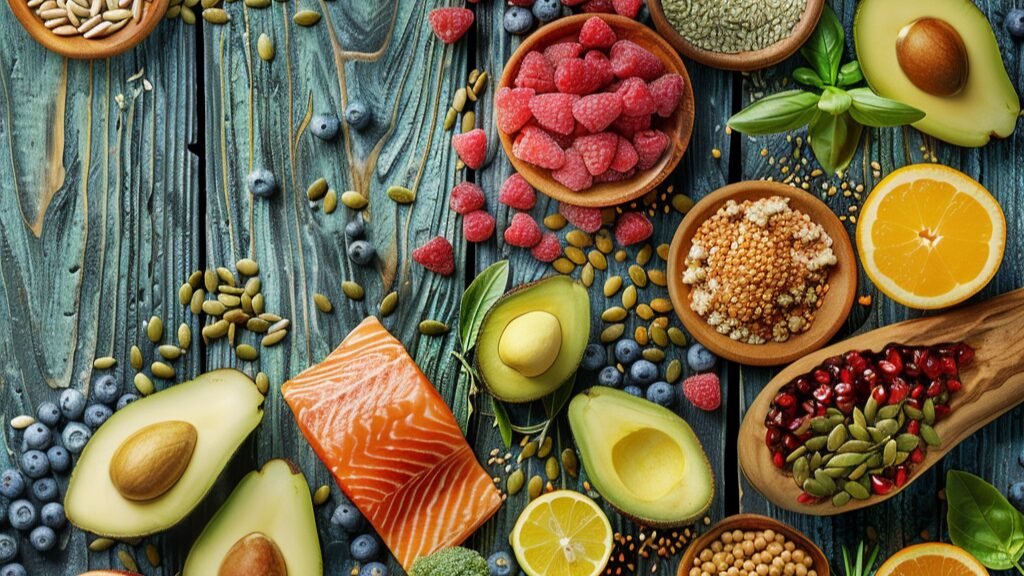
Ease arthritis with smart food choices.
Arthritis, a condition marked by joint inflammation and discomfort, may be influenced by our diet. To mitigate inflammation and alleviate arthritis symptoms, avoid processed foods high in refined sugars and saturated fats. Research indicates refined carbohydrates, (prevalent in processed foods like white bread and sugary snacks), as potential triggers. These foods lack essential nutrients and fiber, leading to a rapid spike in blood sugar levels, setting the stage for inflammation. Elevated blood sugar not only induces a sugar rush but also prompts an inflammatory response, potentially worsening arthritis symptoms.
To counteract this, consider incorporating sources of omega-3 fatty acids into your diet. Plant-based options like chia seeds, flaxseeds, and walnuts, as well as fatty fish such as salmon and mackerel, offer anti-inflammatory properties that may help alleviate arthritis symptoms and promote better joint health.
Additionally, be mindful of omega-6 intake, found in certain vegetable oils, corn oil and salad dressings, as an imbalance with omega-3 fatty acids and excess of omega-6 can contribute to inflammation.
10 foods that may worsen arthritis symtoms:
Individual responses to these foods can vary, so it’s essential to pay attention to how your body reacts to different foods and consult with healthcare professionals or dietitians for personalized dietary recommendations.
1. Sugar: Sugary drinks (fizzy drinks, fruit juices with added sugar), sweets, pastries, desserts like cakes, cookies, and ice cream.
2. Processed Foods: Packaged snacks (crisps, crackers), fast food, frozen meals with added preservatives and flavorings.
3. Red Meat: Beef (burgers, steaks), pork (bacon, sausage), lamb.
4. Fried Foods: French fries, fried chicken, onion rings.
5. Dairy Products: Full-fat cheese, whole milk, cream.
6. Gluten: Wheat-based products (bread, pasta), barley, rye.
7. Alcohol: Beer, wine, spirits (whiskey, vodka).
8. Saturated Fats: Fatty cuts of meat (ribeye steak, pork belly), butter, cream.
9. Artificial Trans Fats: Margarine, packaged snacks with partially hydrogenated oils, fried foods cooked in hydrogenated oils.
10. Nightshade Vegetables: Tomatoes, potatoes (except sweet potatoes), bell peppers.
10 foods to help fight inflammation
Incorporating these foods into a balanced diet may help manage arthritis symptoms, but it’s essential to consult with healthcare professionals or dietitians for personalized dietary recommendations tailored to your specific needs and health condition.
1.Fatty Fish: Salmon, mackerel, trout, and sardines are rich in omega-3 fatty acids, which have anti-inflammatory properties.
2. Nuts and Seeds: Walnuts, flaxseeds, chia seeds, and hemp seeds are sources of omega-3 fatty acids and antioxidants that may help reduce inflammation.
3. Berries: Blueberries, strawberries, raspberries, and blackberries are packed with antioxidants that can help combat inflammation.
4. Dark Leafy Greens: Spinach, kale, and Swiss chard are rich in vitamins, minerals, and antioxidants that may help reduce inflammation.
5. Turmeric: This spice contains curcumin, which has potent anti-inflammatory effects and may help alleviate arthritis symptoms.
6. Ginger: Ginger contains compounds with anti-inflammatory properties that may help reduce arthritis pain and improve mobility.
7. Olive Oil: Extra virgin olive oil is rich in monounsaturated fats and antioxidants, which have been associated with reduced inflammation.
8. Whole Grains: Whole grains like brown rice, quinoa, and oats are high in fiber and nutrients that may help reduce inflammation.
9. Legumes: Beans, lentils, and chickpeas are excellent sources of plant-based protein, fiber, and antioxidants that may have anti-inflammatory effects.
10. Green Tea: Green tea contains polyphenols and antioxidants that may help reduce inflammation and protect against cartilage breakdown in arthritis.
By making mindful choices, you can potentially soothe inflammation and manage arthritis more effectively.
